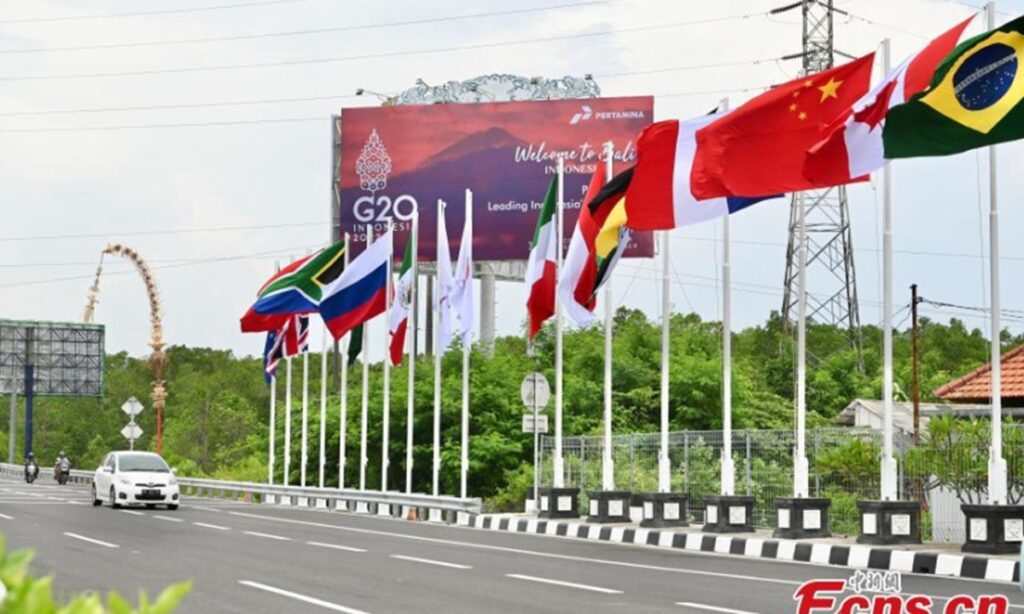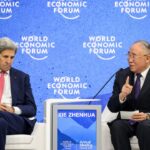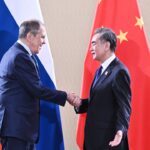Chinese President Xi Jinping met a number of foreign leaders – including some from US allies and major developing economies – on the first day of the G20 Leaders’ Summit in Bali, Indonesia, fully underscoring the strategic and guiding role of head-of-state diplomacy and implications of Chinese diplomacy following the 20th National Congress of the Communist Party of China (CPC) as the world expects China-proposed solutions and its wisdom in handling issues of concern amid growing geopolitical uncertainties.
Xi met French President Emmanuel Macron, Prime Minister of the Netherlands Mark Rutte, South African President Cyril Ramaphosa, Australian Prime Minister Anthony Albanese, Senegalese President Macky Sall, South Korean President Yoon Suk-yeol, Spanish President Pedro Sanchez and Argentinian President Alberto Fernandez on Tuesday on the sidelines of the G20, which Chinese experts said reflects China’s multi-faceted diplomacy and its growing influence in handling international affairs.
It was also the first time the top Chinese leader had such intensive in-person meetings with foreign leaders overseas since the COVID-19 outbreak, which shows China is widely welcomed and expected on the global stage with its major-country diplomacy being put under the spotlight at the crucial multilateral event.
During the meeting with French President Macron, Xi stressed that the two sides need to make top-level planning for the bilateral relations with a view toward the future, respect each other’s core interests and major concerns, deepen practical cooperation, and work for continued progress in traditional areas of cooperation while actively tapping into green energy, scientific and technological innovation and other areas for cooperation potential.
Xi said China hopes France will encourage the EU to stay committed to an independent and positive China policy. China stands ready to work with France to support Indonesia in hosting a successful G20 Bali summit, step up communication and coordination on issues including climate response and biodiversity conservation, jointly uphold true multilateralism.
The Chinese president also expressed the hope for pushing forward China-Europe relations during his meeting with Netherlands Prime Minister Mark Rutte. Xi said that China hopes the Netherlands will play a constructive role in safeguarding multilateralism, pushing forward European openness and cooperation and playing an active role in stable and sound China-Europe ties.
During the meeting with Spanish Prime Minister Sanchez, Xi said China hopes to enhance coordination with Spain under G20 and other multilateral platforms and jointly tackle challenges including the climate change, energy and food crisis. He also hopes that Spain will play an active role in boosting China-EU relations.
Those meetings send a clear message that it is hoped that China-Europe relations will be stabilized by overcoming growing challenges, and the two sides should adhere to strategic independence and respect each other, Cui Hongjian, director of the Department of European Studies at the China Institute of International Studies, told the Global Times on Tuesday.
“China’s insistence on the noninterference principle and rejecting being driven by different ideologies echo Europe’s strategic autonomy strategy pushed by France, and EU members are expected to play a more constructive role in China-EU relations,” Cui said.
Major-country diplomacy
During the meeting with Albanese, prime minister of Australia, with whom China’s ties have deteriorated sharply in recent years, Xi emphasized the importance of candid communication to narrow the divergences, saying that the two countries have no major conflict of interest but highly complementary economies and common aspirations of safeguarding the purposes and principles of the UN Charter.
When talking with South Korean President Yoon, Xi said that China and South Korea should accelerate bilateral free trade agreement negotiations, deepen cooperation in high-tech manufacturing, big data and green economy and jointly safeguard the international free trade system and global supply chains. China also opposes politicizing economic activities or generalizing the security issue.
The US ramped up efforts in instigating its allies in the Asia-Pacific by using mechanisms such as the Quad and the “Indo-Pacific Strategy” to contain China. Most recently, the US reportedly formed a chip alliance to create semiconductor barrier against the Chinese mainland, putting countries like South Korea into a dilemma.
However, such a busy head-of-state diplomacy shows that some of the China-proposed ideas and principles for international relations are being more welcomed and accepted by countries around the world, including the Global Development Initiative and the Global Security Initiative, as well as China-proposed idea of building a community of a shared future for mankind, in contrast to US-led hegemony and bloc confrontation, experts said.
Behind this global spotlight is the trend of China-proposed diplomatic principles winning hearts and minds in an extremely uncertain and unstable world, foreign and Chinese experts said.
China as a world power today builds an international relationship system based on the perspective of multilateralism; the value embodied in multilateralism that China offers is common development, Veronika S. Saraswati, China Study Unit Convener at the Center for Strategic and International Studies Indonesia, told the Global Times on Tuesday.
In contrast to the perspective of unilateralism that eliminates other countries, China emphasizes respect for other countries as well as fair partnership because no country can stand alone. Definitely, this principle is “a candle in the dark” amid world uncertainty and an international economic recession, Saraswati said. “There is great hope in the light that China brings to the world.”
She further noted that China places other countries as partners to develop together, building respectful and non-dominative economic partnerships being a major force in China’s foreign policy principles.
The in-person interaction between Chinese and US leaders, the first of its kind since the COVID-19 outbreak, on the sidelines of G20 has motivated some of Washington’s allies to reconsider their relations with China, Wang Yiwei, director of the Institute of International Affairs at the Renmin University of China, told the Global Times on Tuesday.
The Chinese president expounded on China’s position on the Ukraine crisis. During his meeting with Macron, Xi made the point that China’s position on the matter is clear and consistent: China stands for cease-fire, cessation of the conflict and peace talks. The international community should create conditions for this to happen. China will also continue to work in its way to play a constructive role.
During the meetings with South African President Ramaphosa and Argentinian President Fernandez, he emphasized deepening cooperation under multilateral mechanisms such as BRICS and advancing the China-proposed Belt and Road Initiative by expanding cooperation in sectors such as agriculture, energy and infrastructure, as well as on climate change.
“It reflects what our multi-faceted diplomacy is: We won’t draw a line based on different ideologies and we will take actions to fulfill our promises to the international community,” Cui said. “It doesn’t matter if it’s about post-epidemic recovery or the Ukraine crisis, more countries are realizing that China is playing an active and constructive role.”
(Global Times)




